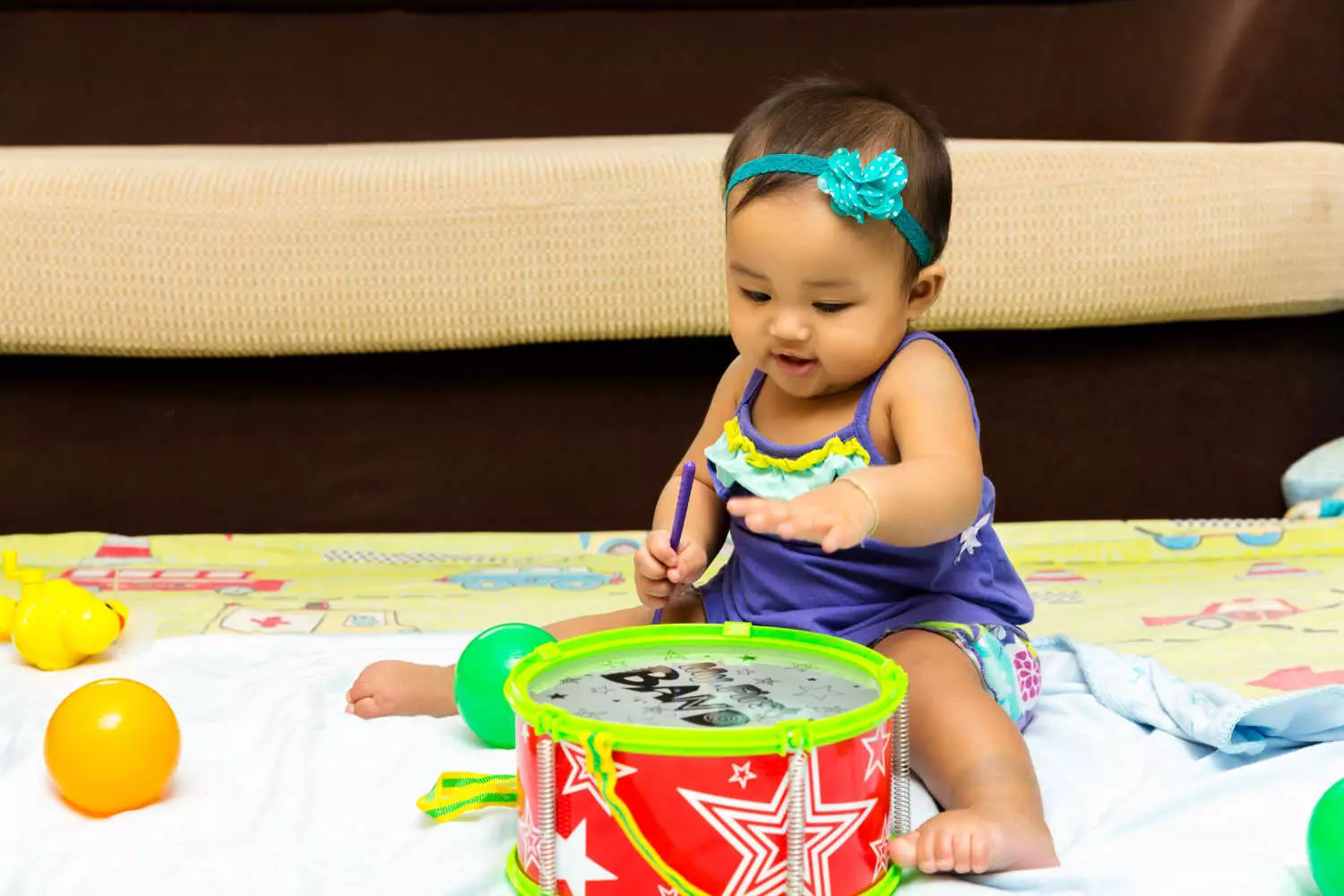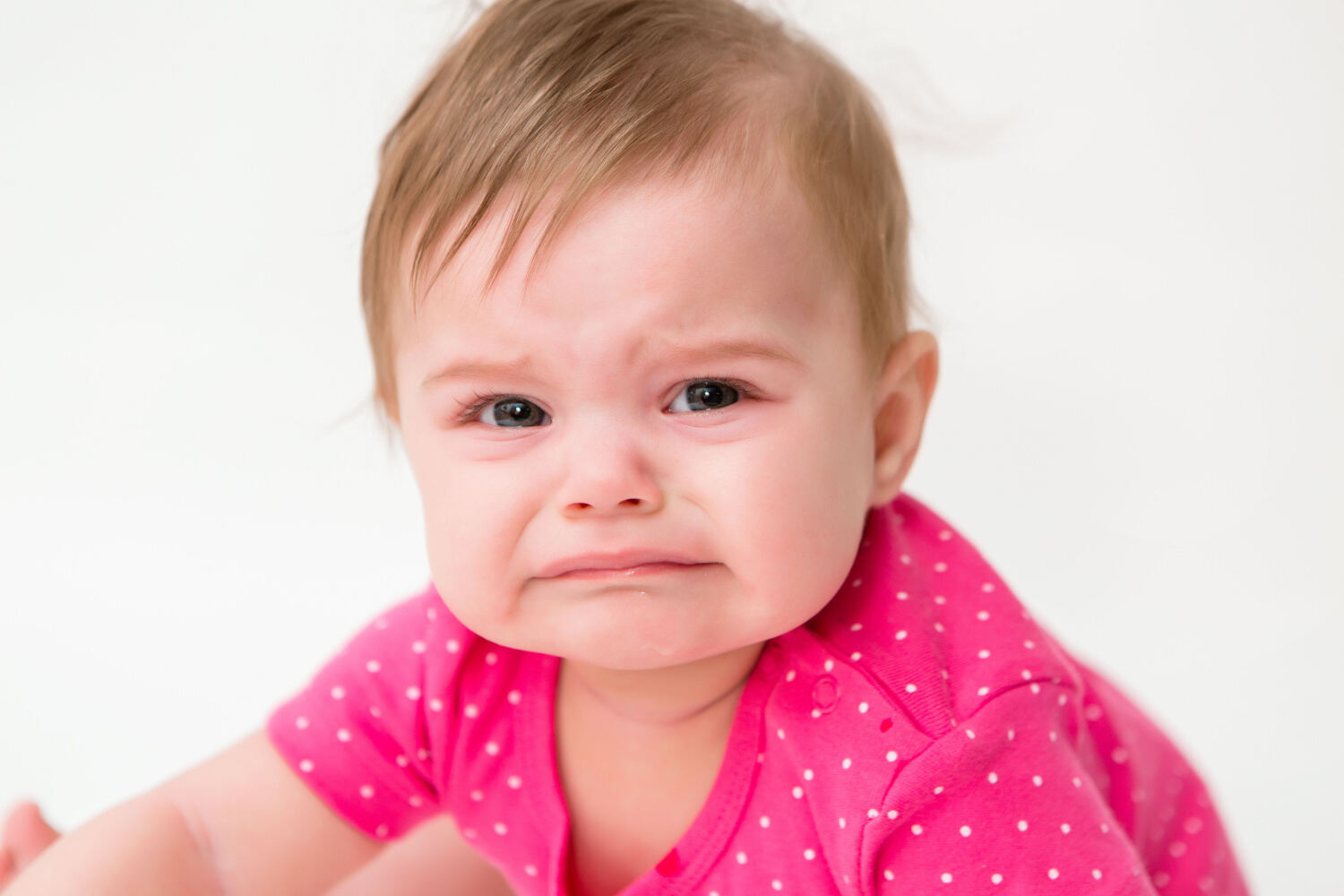
Watery Stool in Babies – Causes And Treatment
6 min readWritten by Editorial Team


Parenting is the most beautiful phase of one’s life. When the little one comes into your life, a lot of things change. Parents are worried, how to manage the unknown issues of the newborn and the most concerning part is the health of the baby. Most of the time new moms are worried about the poop of their newborn. Even the watery stool of babies makes them panic.
Watery motion, frequency of changing diapers, the color of the poop, foul smells cause a headache to the parents. You must be thinking, is it normal? Why is my baby releasing such weird poop? How to know whether it is a normal stool or not? Is it Diarrhoea? What should we do now? Stay with us till the end, you will get all the answers.
In This Article
- Watery Stool in Babies: Is it Normal?
- What are the Causes of Watery Stool in Babies?
- When is a Newborn’s Watery Poop Not Normal?
- How to Know if the Watery Poop is Diarrhoea?
- How to Treat Watery Stool in Babies?
- When to Call a Doctor?
- FAQ’s
Watery Stool in Babies: Is it Normal?
When the newborn comes out from the mother’s womb, the external matters are completely new to him/her. Along with all the other organs, the digestive system also starts to adjust to the outer world. The immature intestine, therefore, cannot digest the food properly and most of it comes out in the form of stool.
Due to this reason, watery poop is very normal for infants. It can be like runny, soft, or mustard paste and may look yellow, tan, brown, or sometimes green in color. Do not panic if you find a messy diaper most of the time. But you should keep a watch as it can indicate many things about your baby’s health.
[Read: Can Teething Cause Diarrhea In Babies?]
What are the Causes of Watery Stool in Babies?

There may be many reasons behind the watery poop of your baby. The important causes you should check are:
1. Developing Intestine
The immature digestive system of the newborn tries to adjust to the external environment and food. Therefore, it is not so capable to consume breast milk or formula milk to the full capacity. Most of the items consumed by the baby are released through poop. During the initial months, infants are dependent on liquid food and therefore, the outcome is also watery.
2. Infection With Fever
Many times viral infection causes watery stools in infants. As per the studies of NCBI, mostly the RotaVirus is behind this infection. There are some bacteria like Salmonella bacteria, E-coli, which cause infections and diarrhea in babies and the result is flowing poop. There are some parasites like Giardia that can also cause this problem.
3. Teething Can Also Cause Watery Stool in Babies
Teething babies feel some irritation on their gums and whatever they get, put into their mouth. Germs easily get into the child’s body through toys, teethers, hands and lead to loose motion.
4. Consumption of Dairy Products and Sugary Foods by Breastfeeding Mothers
Some babies are allergic to cow milk. Often the intestine cannot digest it properly and the newborn releases a liquid stool. Therefore, it is better to avoid cow milk formula, but, if you must, then use it after consultation with your pediatrician.
[Read : Lactose Intolerance In Babies]
5. The Tendency of Lactose Intolerance
The lactose (sugar content in milk) present in the milk is sometimes not easy to digest. Due to the bacterial effect, this lactose converts into gas, resulting in loose stool and stomach bloating.
When is a Newborn’s Watery Poop Not Normal?
Most of the time the watery poop of infants is not a matter of concern. But when there are symptoms of diarrhea, you need to take immediate action.
How to Know if the Watery Poop is Diarrhoea?
The germs of diarrhea can spread from one person to another or even one child to the other easily. Improper food hygiene, irregular sanitization of the utensils which you commonly use to feed your baby may cause this. Below are some symptoms of diarrhea.
- There is more bowel movement than usual. Your baby may release gas frequently accompanied by a foul smell.
- More watery stool, and more frequent discharge than usual.
- Babies lose appetite if they are suffering from diarrhea. In addition to this, they might have nausea, a tendency for vomiting, stomach pain, and cramps too.
- Many times, it has been observed that when the infant is suffering from diarrhea, his/her stool may have blood or some mucus in it.
The major risk of diarrhea is that it causes dehydration in the body. As a result, the body loses a lot of fluids, and in turn, urine decreases drastically and becomes dark yellow in color, tongue, and lips of babies turn dry.
How to Treat Watery Stool in Babies?

Often mild infection or diarrhea goes automatically or can be treated easily. There are some general procedures which are recommended to follow. Let us discuss point by point:
1. Mother’s Milk is the Best Food for Babies
Mother’s milk provides many immunity boosters to the infant. Do not stop feeding breastmilk, even if your baby is spoiling many diapers. Breast milk provides the required fluid to the infant’s body. If the loose motion is accompanied by vomiting, increase the frequency of feeding with small quantities.
2. Keep Them Hydrated
The first and foremost action you need to take in this time is to keep them hydrated. Continue giving ORS (Oral Rehydration Solution) frequently. If your baby is too small or not able to take it from a feeding bottle, use a medicine dropper, small teaspoon, or frozen pops to give this solution.
3. Exercise Caution
Be cautious about the food you give to your little one. Avoid giving sugary or sweetened drinks, jellies, pops, broth, or rice water. These contain wrong amounts of water, salts, and sugar. These can worsen the condition.
4. Sanitize and Disinfect
Always wash your hands properly before holding your baby. Also, it is very much important to disinfect the utensils you are using for your baby.
[Read : Dehydration in Babies]
When to Call a Doctor?

Generally, mild cases recover automatically within a week. But below are some conditions when you should consult with your doctor without further delay:
1. Blood in Stool
If there is any streaks or blood spot in the stools, it may be a result of an infection. Rush to your doctor immediately.
2. Color Change and Foul Smell in Stool
The infant is releasing green or black poop with a foul smell which is unusual.
3. Symptoms of Dehydration
If the baby’s body is dehydrated, you must take him/her to the doctor. Dry tongue and lips, depressed or tired look, no tears, or dry eye are some of the prominent symptoms of dehydration and need immediate attention.
4. High Fever
Along with watery stool, if your baby is suffering from a fever of more than 100-degree F, please take him/her to the doctor.
5. Mucus in the Poop
The runny poop has mucus-like materials in it.
6. Continuous Vomit
If your baby is vomiting continuously, then it’s time to meet your pediatrician immediately.
FAQ’s
1. What are the Reasons for Watery Stools in Babies?
There are many reasons for watery poop in babies. The immature digestive system releases most of the undigested food. Some reasons are viral or bacterial infection.
2. Is it Normal for Babies to Have Watery Poop?
In most cases, it is common in babies and pretty normal. However, in some cases like bloody and black poop, stool with mucus, and frequent loose motions, you need to be worried and call a doctor.
3. How to Treat Watery Stool in Babies?
Generally, in a couple of days, it automatically recovers. Do not stop breastfeeding. Wash your hands properly, sterilize the utensils and feeding bottles appropriately, feed ORS in case of dehydration, and in an acute case, consult your doctor.
Though watery poop is common and normal for infants and it gets resolved automatically, still you need to keep an eye on the stool. The condition of the stool gives you many indications about the health of your little one. A healthy routine of the mother, proper hygienic condition, use of properly sterilized utensils, and feeding bottles helps a lot to avoid the attack of harmful germs and bacteria. If you find any symptoms as mentioned above, talk to your pediatrician immediately.
Read Also: How To Bring Down A Fever In Babies?

Editorial Team,
With a rich experience in pregnancy and parenting, our team of experts create insightful, well-curated, and easy-to-read content for our to-be-parents and parents at all stages of parenting.Read more.
Responses (0)
Want curated content sharply tailored for your exact stage of parenting?
Related articles

Celebrating the Unbreakable Bond of Twins With 200+ Best Twin Baby Quotes

Positive Coombs Test in Newborns – What it is, When it is Done and How to Take Care

Top Activities For a 8 Month Old Baby – Benefits and Tips For Parents

Green Parenting – 7 Ways To Raise An Eco Baby

Cause and Effect Toys For Babies – How it Helps in Baby’s Motor Development

Stress in Babies – Causes & Prevention
Sponsored content
Discover great local businesses around you for your kids.
Get regular updates, great recommendations and other right stuff at the right time.





